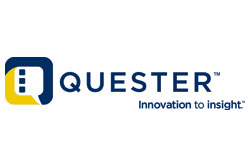Quester was honored to have been featured in a paper presented by David Brandt and Lee Markowitz of Ipsos at this year’s CASRO Online conference in Las Vegas. The paper, titled, “How Online Technology May Open the Door to More Integrated Qual/Quant Research,” reviewed the value of incorporating Socrates probing to obtain deeper insights, and to meet the changing needs of end users of research.
As the authors state, “Market research needs to transform the nature and depth of the insights it provides to clients.” Suggested changes are “not just about providing insights, but about providing transformation, not about quantifying the expected, but listening for the unexpected, not leveraging what we know, but seeking what we don’t know, and identifying how we know what we don’t know.”
Brandt and Markowitz suggest that part of the problem may be the fact that “traditional research approaches are siloed into quantitative, qualitative, and observational. While each has its strength, we are left hungering when we do qualitative for the precision of quantitative; quantitative leaves us without the insight from in-depth qualitative approaches. Research needs to break down these traditional silos if we are to deliver the depth of insights that clients seek.”
The article goes on to discuss the current definitions of quantitative, qualitative, and observational research, and provides examples of emerging methodologies that can be applied to break down the siloed approaches, by focusing on Interactive Probing and use of Virtual Collages.
An overview of the process behind Quester’s probing technology is included in the paper, noting that “the software is trained to probe the consumer’s response using their own language, further personalizing the conversation,” and adding, “the software is sophisticated enough that it can employ different types of probes depending on the situation. These range from clarifications on meaning (the ‘definition’) to in-depth probes that ask the consumer to explain the implications of their response.”
Brandt and Markowitz shared that an analysis of the results of hundreds of applications of Quester’s tool resulted in a “four-fold increase (from 7 words to more than 30) in the number of words in the fully probed response in comparison to an unprobed answer.” In addition, they noted that the consumer response “has more depth,” and “does take us deeper into the emotional drivers.” They illustrate this using a Mental Map analysis provided by Quester, as well as a Means-End Laddering analysis, conducted based on the output from probed open-ends.
Virtual Collages were also discussed as a means of integrating “the concept of play” into survey research to obtain additional depth, and move beyond just what respondents can communicate verbally. Using pictures helps to “tap into a different part of the brain than our language does. Pictures can express thoughts and feelings that are difficult, if not impossible to articulate.”
The authors conclude the article with the following recommendation:
“If people find our questionnaires antiquated and of little interest, they will abandon us. Of equal importance, if we fail to take advantage of what technology enables, our clients will lose faith in our ability to provide insights. So we need to move beyond our traditional practice silos and start taking new and integrated approaches. What you have seen today is by no means the most state of the art approaches that are available, nor are they even necessarily unique to Ipsos. The point is to show that it is possible to improve what we are doing and to approach tomorrow differently than we have today. The pace of change will accelerate. We need to keep experimenting and keep breaking the traditions that unnecessarily keep us from understanding people at the levels necessary.”
Background on the Authors:
David Brandt is a member of the Ipsos Open Thinking Exchange, Ipsos’ innovation center, where he leads the development efforts to modernize how Ipsos gains insights from consumers, including the integration of social media practices and neuroscience.
Lee Markowitz, PhD., is the Chief Research Officer of Ipsos InnoQuest. In his role, Lee is responsible for certifying that all methodologies, products, and approaches developed by Ipsos InnoQuest, Ipsos’ Innovation and Forecasting practice, are globally consistent, of the highest quality, and best in class.

